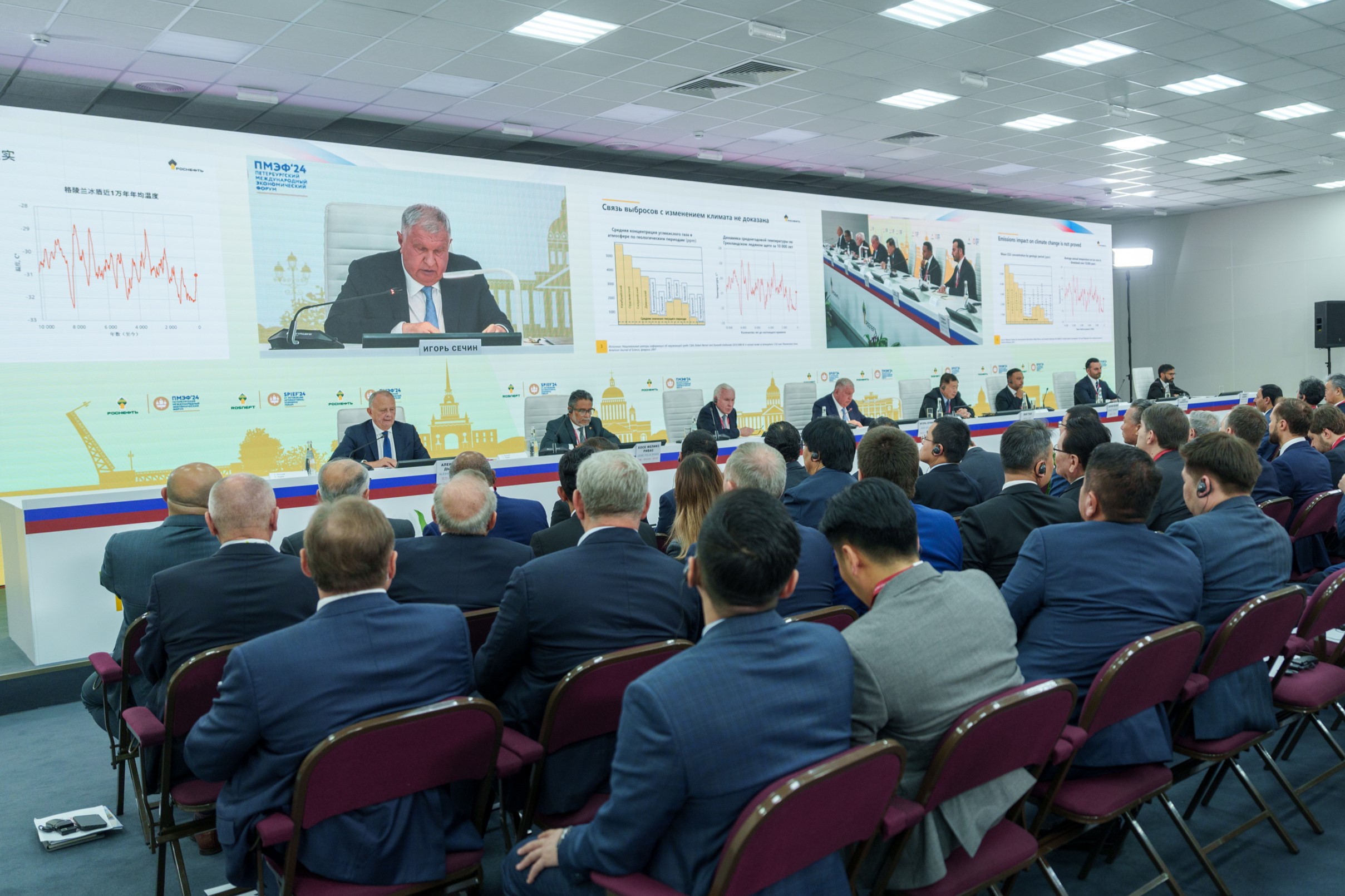At the 27th St. Petersburg International Economic Forum, Rosneft's CEO called for
balanced energy transition to address global needs
Chief Executive Officer of Rosneft Igor Sechin delivered a
speech at the Energy Panel of the 27th St. Petersburg International Economic Forum
paying special attention to the energy transition and discussing the forecast by OPEC of
which Qatar is also a part. Rosneft has established significant connections with Qatar in
the energy sector. One notable partnership is its collaboration with Qatar Investment
Authority (QIA), the sovereign wealth fund of Qatar. Additionally, Rosneft has explored
cooperation opportunities with Qatar in various areas of the energy industry, including
joint ventures, investment projects, and technology exchanges.
Talking about the forecast by OPEC, an organization enabling the co-operation of
leading oil-producing countries, the Rosneft CEO said, “It is not surprising that global oil
demand continues to grow despite the expectations of the so-called ‘oil peak’. I believe
that OPEC's forecast paints quite a realistic picture of the future of the global energy
industry,” he said. According to OPEC forecast, oil demand is to grow almost by 20% to the value of 116
million bpd by 2045, and oil is to continue to account for about 30% of the global energy
mix. According to the Rosneft CEO, developing countries will be the main drivers of oil
consumption in the coming decades. By 2030, demand growth in this group of countries
is expected to account for 95% of global consumption growth in aggregate. The highest
growth in oil demand is expected in Asian countries, which are Russia's main trading
partners.
According to Igor Sechin, aggressive promotion of the green agenda means declaring
an energy war on most of the world's population. “Overcoming energy inequality is
impossible without reliable supplies of oil and gas. In addition to petroleum products, oil
is used for the production of a huge number of day-to-day goods, without which the life
of modern humans can no longer be imagined,” he said.
Throwing light on increasing talks on alternative energy resources, he said, “Despite
huge investments made over the past decades, alternative energy sources have not led
to the displacement of fossil fuels from the energy market and failed to occupy a
significant share in the global market. At the same time, there is an imbalance in the
energy market, which is caused by irresponsible and aggressive policies of the Western
countries,” Igor Sechin said.
According to Rosneft CEO Igor Sechin, “it is necessary to focus on the interests of the
majority. The energy transition should be well-balanced and focused on addressing the
interests of the majority that will ensure the growth of energy consumption in the coming
years, i.e. developing countries.”
It will be interesting to note here that according to reports developed countries account
for 65% of the cumulative emissions produced over the last 200 years; the world's 10%
wealthiest population is responsible for half of all CO2 emissions; the world's 1%
wealthiest population accounts for twice as much carbon dioxide emissions as the
poorest 50% of the world's population.
Pointing out that the developed countries have contributed most to the climate crisis,
Igor Sechin said “To achieve energy security, it is necessary to ensure the sufficiency,
affordability and reliability of energy sources. Electric vehicles are not a panacea for all
environmental challenges. Revision of electric vehicle subsidy policies demonstrates the
lack of planning and haste with which Western countries initially approached
electrification of vehicles. While they succeeded in attracting buyers with high subsidies
a few years ago, Western governments are now planning to impose taxes on electric
vehicles to plug budget holes,” said Sechin.
Over the past decade, Western technology giants have worked hard to demonize fossil
fuels, shut down power plants that provide reliable electricity supplies, and promote
unreliable renewable energy. “The growing demand for electricity on the part of data
centers can no longer be met with existing capacity. The introduction of new technologies in
the context of energy transition requires huge investments. In particular, the cost of
transition to electric vehicles in large megacities is estimated in tens of billions of
dollars,” he said.
There are no profit-making sources for the “green” transition, and its implementation is
an illusion, which leads to the withdrawal of investments from the traditional energy sector.
That is, there will be neither, the Rosneft CEO said.
Igor Sechin added “Now that the failure of the ‘green transition’ concept is evident,
we have to develop a new strategy for a reliable and secure energy supply tailored to
the needs of developing countries.”
In his speech, the Rosneft CEO also said that in recent years, the use of the dollar as
an economic weapon and the uncontrolled growth of the U.S. national debt have set in
motion the process of de-dollarization. The growth of US national debt is one of the
factors in undermining confidence in the dollar and shifting problems from the financial
sector to the energy market and the rest of the world.



